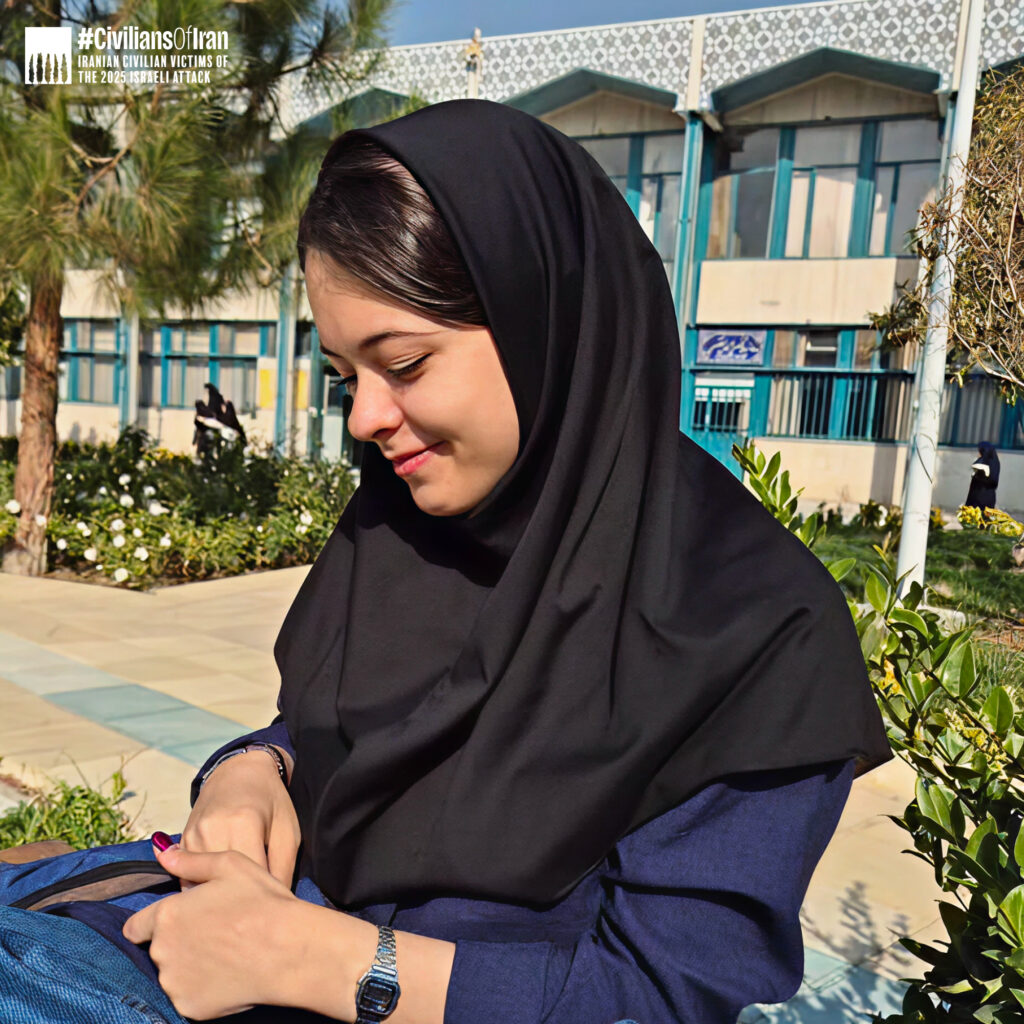Fatemeh Seddighi Saber: A First-Semester Medical Student Who Wanted to Become a Psychiatrist
Sara was the nickname of Fatemeh Seddighi Saber, a young medical student who wanted to go to the gym after school and enroll in painting classes in the evenings.
On June 13, Sara lost her 17-year-old brother, Hamid Reza. Shortly after, she and her family fled to her grandfather’s house on the edge of Ashrafieh, hoping to find safety. But safety was far from assured. An Israeli drone strike destroyed the house, killing fifteen innocent people, including Sara, her younger sister, her parents, and many relatives. Sara was only 19 years old.
The war had not yet begun when Sara and her close friend Romina said their final goodbyes, according to Shargh newspaper. At the Isfahan terminal, they hugged tightly, kissed each other, and promised to return to the dormitory together after the university exam break. Their friendship had blossomed just a few months earlier. Sara, a hopeful first-year medical student, had arrived at the dormitory, where she was warmly welcomed by Romina, a senior. Sara wanted to become a psychiatrist. Romina planned to specialize in neurology. Their bond grew quickly, built on shared aspirations and a deep care for people.
But the war destroyed everything. Just 23 days after Sara birthday party together, Sara’s life came to a brutal end. The university had closed early so students could return home for the exam break. Romina went to Khorramabad, and Sara returned to Tehran. They parted ways at the terminal, promising to see each other soon.
Romina remembers the vibrant young woman she lost” Sara was intelligent and thoughtful. She cared deeply about the people and the country she loved. When they sat together after class and talked about life, it was clear how much Iran and its people meant to her. She was kind, considerate, and full of dreams. She wanted to study psychiatry, read constantly, go to the gym, and take painting classes that summer. She was an intellectual whose beliefs were shaped by deep thought”.
Losing Sara has left an unbearable hole in her soul. “We were very close. We talked until late, and sometimes she would sleep at my house,” Romina says. “She was like a little sister to me, and I felt like I had to protect her. I have barely slept since I heard the news. The thought of returning to Isfahan without her is suffocating. Seeing her belongings, knowing that she is buried under the ground, tears my soul apart. I wish I had never let her return to her city. I wish we had stayed together.”
Sara’s last message to Romina was a simple, unforgettable phrase: “I miss you.” After that, her phone went silent — and so did her life.
Her story is a devastating reminder that behind the headlines and political infighting, there are human lives — young people with dreams, hopes, and fleeting futures. Sara was not a fighter or a cause. She was a daughter, a sister, a student trying to heal others through medicine. Her death, along with the deaths of her family, exposes the brutal reality of war’s innocent victims — ordinary people who pay the highest price for violence beyond their control.


